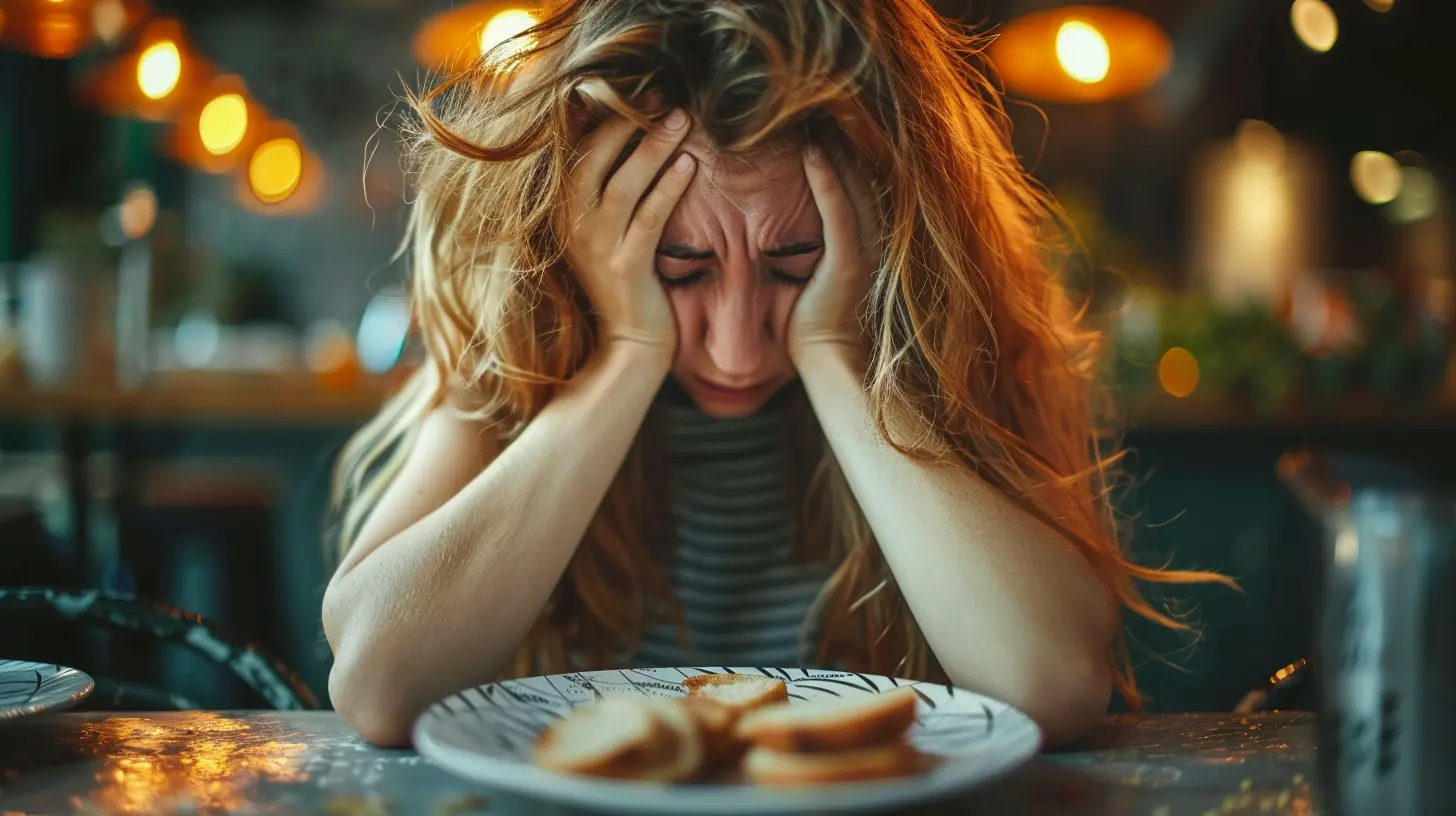The Connection Between Gluten and Mental Health
11 July 2025
Let’s cut straight to it — you’ve probably heard the word “gluten” tossed around like it’s the bad guy of modern diets. You've seen the “gluten-free” labels on everything from bread to bottled water (yes, seriously). But beyond all the dietary hype, there’s a growing conversation about gluten and its link to mental health—and it’s not just food for thought.
You might be wondering, “Wait, gluten affects my brain too?” Yep, it just might. And that’s what we're here to unpack: the potential connection between gluten and mental health. Whether you're gluten-intolerant, living with celiac disease, or just curious about how your morning bagel might be messing with your mood, this article is your go-to guide.
What Is Gluten, Really?
Before we dive into brains and mood swings, let's get the basics out of the way.Gluten is a type of protein found in grains like wheat, barley, and rye. It’s what gives bread that chewy texture and helps it rise. While that sounds pretty harmless (and even tasty), for some folks, gluten is anything but friendly.
There are three main categories of gluten-related issues:
- Celiac disease – An autoimmune response where gluten damages the small intestine.
- Non-celiac gluten sensitivity (NCGS) – Similar symptoms to celiac, but without intestinal damage.
- Wheat allergy – A traditional food allergy that causes immune reactions.
And where the plot thickens? Each of these may affect more than just your gut.
Gluten and Mental Health: What's the Connection?
Here’s where things start to get interesting. The gut and brain are connected in more ways than we used to believe. There's even a term for it: the gut-brain axis. That’s a fancy way of saying our digestive system and brain are in constant communication.So, if gluten messes with your gut, it could be influencing your mind too.
Let’s look at the ways gluten potentially impacts mental health:
1. Gluten and Depression: A Surprising Bond
Ever feel inexplicably down after eating a pasta-heavy meal? You're not alone.Several small-scale studies have suggested that people with celiac disease or gluten sensitivity often experience mood disorders, especially depression. One clinical study found that those newly diagnosed with celiac disease were significantly more likely to report depression symptoms. When they adopted a gluten-free diet? Their mood improved.
What’s the deal here?
- Inflammation: Gluten might trigger inflammation in sensitive individuals, and chronic inflammation is closely linked to depression.
- Nutrient deficiencies: Gluten can damage the gut lining, especially in celiac sufferers, leading to poor nutrient absorption (think iron, folate, and B12 — all vital for mood regulation).
Pretty wild, right? The bread you eat could be affecting your brain chemicals.
2. Gluten and Anxiety: Fueling the Fire?
Anxiety is like your mind's smoke alarm — sometimes it works too well, going off even when there's no real fire.Interestingly, many people who ditch gluten report reduced anxiety levels. Why might this be?
- Brain fog and panic attacks are often associated with gluten sensitivity.
- A 2014 study published in the journal Alimentary Pharmacology & Therapeutics showed that people with non-celiac gluten sensitivity experienced increased anxiety when consuming gluten—even without gastrointestinal symptoms.
So yes, for certain folks, gluten might be acting as a mental trigger.
3. Gluten-Induced Brain Fog: Real or Myth?
You know that sluggish, spaced-out feeling where it seems like your brain took a coffee break without telling you? That's what many call “brain fog.”It’s not a medical diagnosis, but it’s real enough for those who experience it. People with gluten sensitivity commonly complain of:
- Trouble concentrating
- Short-term memory lapses
- Feeling mentally drained
How does gluten come into play? Scientists believe it might boil down to neuroinflammation — inflammation of the brain — potentially caused by immune responses to gluten. It's like your brain gets tangled in a web of confusion every time gluten enters your system.
4. Gluten and ADHD: A Hidden Culprit?
Attention deficit hyperactivity disorder (ADHD) is typically linked to neurological and genetic factors, but diet has increasingly come under the microscope.Some studies suggest children with ADHD tend to show signs of gluten sensitivity. One small trial even found that an entirely gluten-free diet led to a noticeable improvement in ADHD symptoms in certain kids.
While the science is still a bit sparse, it raises an eyebrow, doesn’t it? Could gluten be clouding focus and fueling hyperactivity?
5. Gluten and Schizophrenia: A Historical Link
This might shock you — but back in the 1950s, researchers noticed that hospital admissions for schizophrenia dropped when World War II forced a gluten-free diet (due to wheat shortages). Years later, scientists revisited the idea and found that some people with schizophrenia have elevated antibodies to gluten proteins.While it’s not suggesting gluten "causes" schizophrenia, there may be a subgroup of patients who react poorly to it.
This clue, although not universal, underscores the need to look at mental health through a more personalized, nutritional lens.
How Does Gluten Affect the Brain?
Let’s break it down like a pizza crust (gluten-free, of course).Here are the three main pathways gluten might impact mental health:
A. Inflammation and the Brain
When gluten triggers an immune reaction, the body goes into attack mode. Inflammation increases — not just in the gut, but everywhere, including the brain. This is called “neuroinflammation.”What does neuroinflammation do? It affects neurotransmitters like serotonin and dopamine — your brain's “feel-good” chemicals. Mess with those, and your mood, energy, and clarity take a nosedive.
B. Gut Damage Leads to Nutrient Deficiency
If your gut is inflamed or damaged (as with celiac disease), it can’t properly absorb nutrients. And guess what? Your brain needs nutrients like:- Iron
- Zinc
- Magnesium
- B-vitamins
Without these, your mind might slow down, and your moods could tumble.
C. Leaky Gut and the Blood-Brain Barrier
Here’s where things get a little science-y (stay with me).A “leaky gut” happens when the intestinal lining becomes permeable. This lets undigested food particles and toxins pass into the bloodstream. From there, they could potentially cross the blood-brain barrier — the brain’s protective wall — leading to brain inflammation.
Imagine your brain's bouncer letting in all the wrong VIPs. Not good.
Should You Go Gluten-Free for Better Mental Health?
Here’s the million-dollar question: If gluten may be tied to mood swings, anxiety, or brain fog, should you give it the boot?Well, it depends.
If you’ve been diagnosed with celiac disease, it’s a no-brainer. Get off gluten, and your gut and mental health will likely thank you.
If you suspect you might be gluten-sensitive, you could try an elimination diet for a few weeks. Track your mood, mental clarity, and energy levels. Reintroduce gluten and see what happens.
Here are a few tips if you decide to give it a shot:
- Be strict — even tiny traces of gluten can mess up the results.
- Read food labels like a detective.
- Replace, don’t just remove — fill your plate with whole, nutrient-rich foods.
- Keep a journal — noting your emotions, sleep quality, and any mental shifts.
But — and this is a big BUT — don’t self-diagnose. Talk to a healthcare provider or a dietitian before jumping on the gluten-free train, especially if you're dealing with serious mental health issues.
The Psychological Toll of Going Gluten-Free
Cutting out gluten isn’t all sunshine and quinoa. There’s a psychological side to consider.Social isolation, food anxiety, and even orthorexia (an obsession with 'clean' eating) can creep in when restrictions take over your life. So balance is key. You’re not morally better for avoiding bread — you’re just learning what your body needs.
Final Thoughts: Is Gluten the Missing Link in Mental Health?
The connection between gluten and mental health is more than just a trendy topic — it's a field that’s starting to gain serious attention. While it’s not the cause of every mood swing or mental disorder, gluten could be a silent saboteur for some people.If you've been battling unexplained anxiety, depression, or brain fog, and nothing seems to help, it might be worth taking a closer look at what's on your plate.
Your brain and gut talk to each other constantly. Maybe it's time you started listening in on the conversation.
Quick FAQ: Gluten and Mental Health
Q: Is gluten bad for everyone?No, most people digest gluten just fine. The issues mainly arise in those with gluten-related disorders.
Q: Will going gluten-free cure my depression or anxiety?
Not necessarily. But if gluten sensitivity plays a role, it could reduce symptoms significantly.
Q: How long should I try a gluten-free diet to see results?
Try it for at least 3–4 weeks, but consult with a professional before making major changes.
Q: Can gluten really cause brain fog?
In sensitive individuals, yes. Many report clearer thinking after removing gluten.
all images in this post were generated using AI tools
Category:
Gluten FreeAuthor:

Angelo McGillivray
Discussion
rate this article
1 comments
Catherine McGuffin
Thank you for this insightful article! It’s fascinating to see the emerging connection between gluten and mental health. Understanding how diet impacts our mood and cognition is crucial. I look forward to exploring this topic further and considering how dietary changes might benefit mental well-being.
July 22, 2025 at 3:02 AM

Angelo McGillivray
Thank you for your thoughtful comment! I’m glad you found the article insightful. The link between diet and mental health is indeed a crucial area for exploration.


